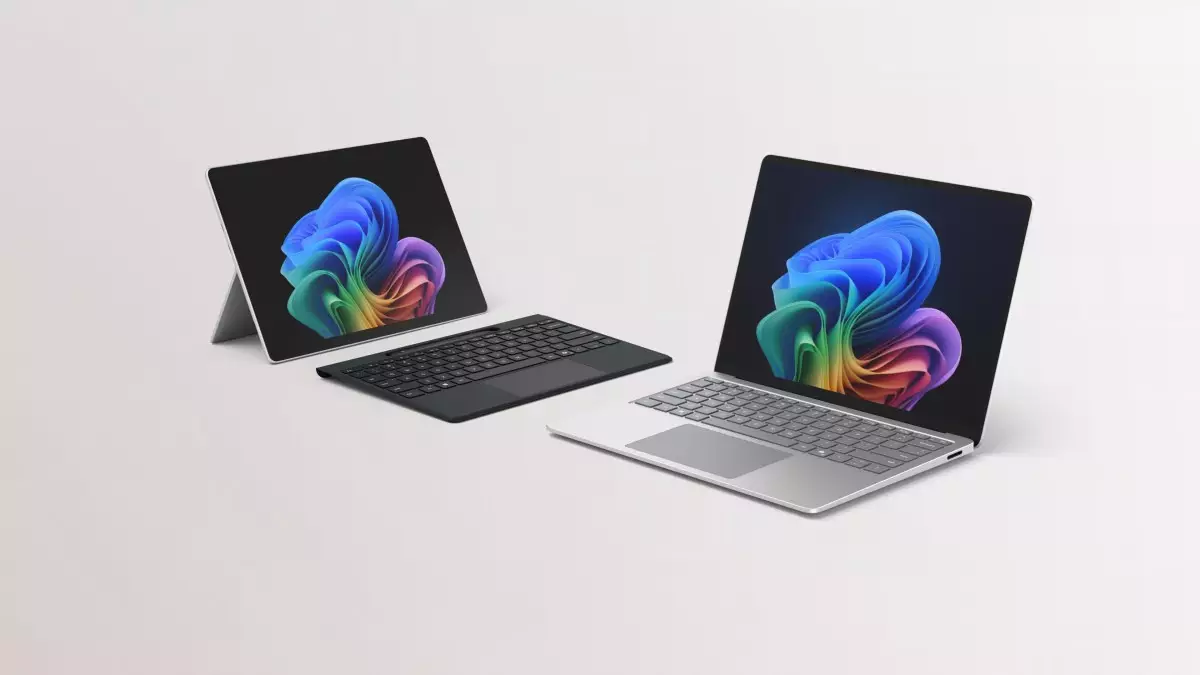The tech landscape is abuzz with anticipation following Microsoft’s recent launch event in New York City, where the company showcased its latest additions to the Surface product line: the all-new Surface Pro and Surface Laptop. These models come equipped with Copilot+ PC certification, a program unveiled in May 2024 aimed at establishing a suite of business-centric devices tailored for Microsoft’s cutting-edge AI platform, Copilot. This development signals a shift towards a more integrated and seamless AI experience within the Windows 11 ecosystem, amplifying the importance of on-device processing capabilities.
Microsoft’s concerted effort to integrate AI features into its flagship operating system reveals a commitment to modernizing user experiences. The Copilot+ designation specifically highlights devices imbued with specialized hardware, notably a neural processing unit (NPU). This hardware enables functionalities such as Live Translation, Super Res, Recall, and Studio Effects, which promise to streamline workflows and enhance productivity. As seen with the influx of Copilot+ certified devices from brands like Acer, Asus, Dell, HP, and Lenovo following CES, the trend suggests a collective push towards devices that bring AI processing directly to users.
At the event, Microsoft stressed how both the Surface Pro and Surface Laptop utilize NPUs to augment their AI capabilities, showcasing the increasing reliance on intelligent solutions that operate locally. This design shift corresponds perfectly with the pressing demand for devices capable of handling AI workloads independently, rather than burdening remote servers with heavy processing tasks. Herein lies a critical evolution in how business computing is approached today, heralding an era where advanced features do not necessarily mean sacrificing device performance.
The choice between Intel and Qualcomm’s Snapdragon processors marks a significant crossroads for consumers considering the new devices. The Intel Core Ultra (Series 2) chips offer impressive performance boosts—up to 28% for CPU and almost 98% for graphics—making them a favorable option for power users. However, the introduction of Snapdragon X processors promises extended battery performance, with Qualcomm’s “multi-day” battery life positioning these systems as appealing alternatives for mobile professionals.
While the Snapdragon chips’ performance may not match that of their Intel counterparts, the emphasis on energy efficiency and effective AI processing presents a solid argument for their use in business environments where battery longevity can significantly influence productivity. Microsoft’s corporate vice president, Brett Ostrum, reassured stakeholders that despite differing processor capabilities, the Copilot functionality will largely remain unaffected, which is crucial for users relying on these tools for a seamless experience.
In a world increasingly reliant on constant connectivity, the upcoming 5G options for the Surface Laptop exemplify a strategic move to keep users connected, enhancing the capabilities of the Copilot platform. With many generative AI operations necessitating cloud support, the integration of 5G technology ensures that users will have robust access to remote resources when local processing falls short. This move aligns with broader trends observed in the tech industry, where companies like Apple are also developing solutions that leverage local AI while maintaining robust connections for supplementary support.
The groundwork laid by Microsoft’s DeepSeek reveal suggests a future with more lightweight AI applications operating directly from devices, lessening the dependence on cloud processing. This approach not only addresses latency issues but also enhances security, a growing concern in today’s data-driven world.
Targeting both consumers and business sectors, the new Surface devices present varied pricing strategies. While the Intel models start at a premium price point of $1,500, the Snapdragon alternatives are notably more accessible with a $400 difference. Microsoft’s pricing strategy reflects its understanding of diverse market demands—providing options that cater to varied user needs while fostering a competitive edge in the bustling hardware landscape.
Additionally, the forthcoming USB4 Dock, expanding connectivity options for both models, underscores Microsoft’s commitment to creating a comprehensive ecosystem around its Surface line. With an expected release date on February 18, these accessories promise to complement the new devices effectively.
Microsoft’s latest Surface offerings continue to elevate the intersection of AI and personal computing. By focusing on performance, connectivity, and user-centered design, the tech giant is set to reshape the landscape of business-centric computing—not just with hardware, but with a vision for a more intelligent and integrated future.

